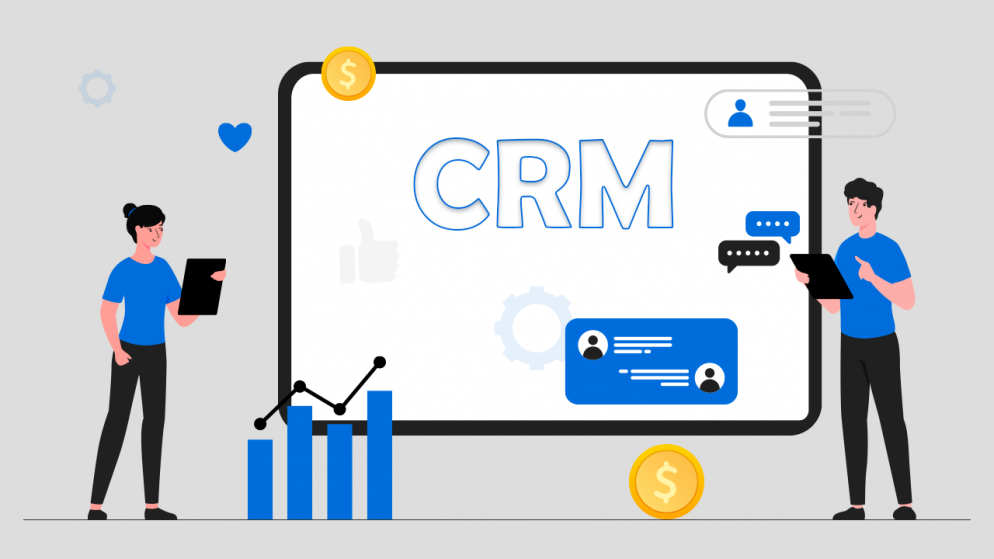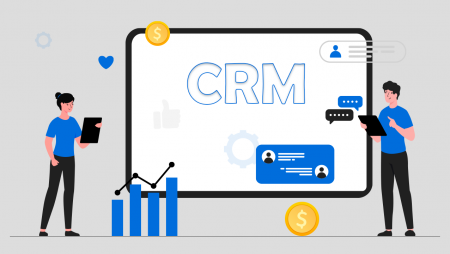

Table of Contents
What Is Capsule?
In the context of machine learning, “Capsule” specifically refers to a type of neural network architecture called Capsule Networks, or CapsNets for short. Capsule Networks were proposed by Geoffrey Hinton and his team in 2017 as a potential improvement over traditional Convolutional Neural Networks (CNNs).
The basic idea behind Capsule Networks is to use “capsules” as the fundamental building blocks instead of neurons. Capsules can represent various properties of an object, such as its presence, orientation, size, etc., and can also encode the relationships between these properties. Each capsule can be thought of as a set of neurons that work together to represent a particular feature.
One of the main advantages of Capsule Networks over CNNs is that they can better handle variations in the position and orientation of objects in an image. Capsules can learn to represent the intrinsic properties of an object and its spatial relationships with other objects, which can lead to more robust and accurate predictions.
Capsule Networks are still an active area of research, and there are many ongoing efforts to improve their performance and scalability. However, they hold promise for a variety of applications, including image recognition, natural language processing, and robotics.
Key Capsule Features
Here are some key features of Capsule Networks:
- Capsules: As the name suggests, Capsule Networks use capsules as the basic building blocks instead of neurons. Capsules are groups of neurons that work together to represent a specific feature of an object and its spatial relationships with other objects.
- Dynamic Routing: Capsule Networks use a process called dynamic routing to determine how capsules in different layers should communicate with each other. Dynamic routing enables capsules to learn how to represent complex objects and their parts, and how to recognize them even when they appear in different positions and orientations.
- Pose Estimation: Capsule Networks can learn to estimate the pose of an object, which refers to its position, orientation, and size in 3D space. This can be useful in applications such as robotics, where it is important to recognize objects and their poses in order to manipulate them.
- Hierarchical Structure: Capsule Networks have a hierarchical structure, which means that they can represent objects at different levels of abstraction. For example, lower-level capsules might represent edges and corners, while higher-level capsules might represent parts of objects and whole objects.
- Robustness: Capsule Networks are designed to be more robust to variations in the position, orientation, and scale of objects. This is because capsules can represent these properties explicitly, and can learn to recognize objects even when they appear in different poses.
- Interpretability: Capsule Networks can be more interpretable than other types of neural networks because they represent objects and their parts explicitly. This means that it is possible to understand how a Capsule Network is making its predictions, and to identify which parts of an object are important for recognition.
Capsule Pricing
It’s important to note that the term “Capsule” can refer to different things depending on the context, so there is no one-size-fits-all answer to the question of pricing.
In the context of medicine, the price of capsules can vary widely depending on the medication, the dosage, the manufacturer, and other factors. Prices can range from a few cents to several dollars per capsule.
In the context of computer science and machine learning, Capsule Networks are a type of neural network architecture that is implemented in software rather than physical capsules. Therefore, there is no direct cost associated with using Capsule Networks themselves, although there may be costs associated with the hardware and software infrastructure needed to run them.
Some machine learning frameworks and libraries, such as TensorFlow and PyTorch, provide support for Capsule Networks and are open source, which means that they can be used for free. However, there may be costs associated with cloud computing services or other infrastructure needed to train and deploy Capsule Networks at scale.
In summary, the pricing of capsules depends on the context in which the term is being used, and can vary widely depending on the specific product or service involved.
Capsule Ease Of Use
The ease of use of Capsule Networks, like any other machine learning tool or technique, depends on several factors, including the user’s experience and expertise, the quality of the documentation and resources available, and the complexity of the task at hand.
Here are some factors that can affect the ease of use of Capsule Networks:
- Familiarity with neural networks: Capsule Networks are a relatively new and specialized type of neural network architecture, so users may need to have some familiarity with the basics of neural networks to understand how they work and how to use them effectively.
- Complexity of the task: Capsule Networks are designed to handle complex tasks that require the recognition of objects and their spatial relationships, so they may be more difficult to use than simpler machine learning models for tasks that don’t require this level of sophistication.
- Availability of resources: The availability of documentation, tutorials, and other resources can have a big impact on the ease of use of Capsule Networks. If there are comprehensive and well-organized resources available, users may find it easier to learn how to use Capsule Networks effectively.
- Implementation and tooling: Implementing and training Capsule Networks can be challenging, especially for large-scale applications. However, there are several machine learning frameworks and libraries, such as TensorFlow and PyTorch, that provide support for Capsule Networks and can make it easier to build and train models.
- Interpretability: One potential advantage of Capsule Networks is that they can be more interpretable than other types of neural networks. However, interpreting the results of a Capsule Network can still require some expertise and understanding of the underlying algorithms and architecture.
Overall, the ease of use of Capsule Networks depends on several factors, and may require some investment of time and effort to master. However, with the right resources and support, Capsule Networks can be a powerful tool for complex machine learning tasks.
Managing A Sales Pipeline In Capsule
Capsule CRM provides a sales pipeline management feature that enables you to manage your sales process from lead generation to deal closure. Here are the steps involved in managing a sales pipeline in Capsule:
- Add leads: Add new leads to your Capsule CRM account by creating a new contact and selecting the “Lead” status. You can also import leads from other sources, such as a spreadsheet or another CRM.
- Qualify leads: Review your leads and qualify them based on their potential to become a customer. Update the status of qualified leads to “Opportunity” to move them to the next stage of the sales pipeline.
- Create deals: Once a lead is qualified as an opportunity, you can create a new deal in Capsule to track the progress of the sale. A deal represents a potential sale and includes details such as the value of the deal, the expected close date, and the associated contacts.
- Move deals through stages: Capsule provides a customizable sales pipeline with default stages such as “Qualified,” “Proposal,” and “Closed Won.” Move your deals through these stages as they progress through the sales process. You can also create custom stages to fit your specific sales process.
- Manage deals: Keep track of all the details related to each deal, including notes, emails, and documents. You can also set reminders and follow-up tasks to stay on top of each deal.
- Close deals: Once a deal is won, update its status to “Closed Won” and celebrate! You can also create follow-up tasks to ensure a smooth transition to onboarding and customer success.
By using Capsule’s sales pipeline management feature, you can streamline your sales process, stay organized, and track your progress toward your sales goals.
Reporting In Capsule
Capsule CRM provides several reporting features that enable you to gain insights into your sales and marketing activities. Here are some of the reporting capabilities available in Capsule:
- Sales pipeline report: The sales pipeline report provides an overview of your sales pipeline, including the number of deals in each stage, the value of the deals, and the win rate.
- Sales forecast report: The sales forecast report provides a projection of your sales revenue based on the expected close dates of your deals.
- Lead conversion report: The lead conversion report shows the percentage of leads that convert to opportunities, and the percentage of opportunities that convert to closed deals.
- Activity report: The activity report provides an overview of the activities performed by your team, such as calls, emails, and meetings, and how they relate to deals and opportunities.
- Custom reports: Capsule also provides the ability to create custom reports based on your specific needs. You can filter and group data by various criteria, such as contact tags, custom fields, and date ranges.
- Exporting data: Capsule allows you to export data from any report to a CSV file, which can be opened in a spreadsheet program such as Microsoft Excel or Google Sheets.
By using Capsule’s reporting features, you can gain insights into your sales and marketing activities, identify areas for improvement, and make data-driven decisions to improve your business outcomes.
Alternatives To Capsule
There are several alternatives to Capsule CRM that offer similar features and functionality. Here are some popular options:
- HubSpot CRM: HubSpot CRM is a free CRM that offers sales pipeline management, lead and deal tracking, and reporting features. It also integrates with other HubSpot products, such as marketing automation and customer service tools.
- Salesforce CRM: Salesforce CRM is a cloud-based CRM that offers a wide range of features, including sales pipeline management, lead and deal tracking, and reporting. It is a more robust solution than Capsule, with advanced customization options and integrations with third-party apps.
- Zoho CRM: Zoho CRM is a cloud-based CRM that offers sales pipeline management, lead and deal tracking, and reporting features. It also includes marketing automation tools and integrations with other Zoho products.
- Pipedrive: Pipedrive is a sales-focused CRM that offers pipeline management, lead and deal tracking, and reporting features. It also includes sales automation tools and integrations with third-party apps.
- Freshsales: Freshsales is a cloud-based CRM that offers sales pipeline management, lead and deal tracking, and reporting features. It also includes built-in phone and email capabilities and integrations with other Freshworks products.
These are just a few examples of the many CRM solutions available in the market. When choosing a CRM, consider your specific needs, budget, and the level of support and resources provided by the vendor.
Conclusion
In conclusion, Capsule CRM is a user-friendly and affordable CRM solution that offers a range of features for managing contacts, sales pipelines, and tasks. Its intuitive interface, customizable fields, and integration with other tools make it a popular choice for small and medium-sized businesses.
Capsule’s sales pipeline management feature allows businesses to manage their sales process from lead generation to deal closure, while its reporting capabilities provide insights into sales and marketing activities. Additionally, Capsule offers a range of integrations with third-party tools, including marketing automation, customer service, and accounting software.
While Capsule may not be as robust or customizable as some of the more expensive CRM solutions on the market, it offers a good balance of features and affordability for businesses looking to streamline their sales and customer management processes. Overall, Capsule CRM is a great option for businesses looking for an easy-to-use CRM solution that won’t break the bank.
FAQs
What is Capsule CRM?
Capsule CRM is a cloud-based customer relationship management (CRM) tool designed to help businesses manage their contacts, sales pipelines, and tasks.
What are some key features of Capsule CRM?
Capsule CRM offers several key features, including contact management, sales pipeline management, task management, email integration, reporting, and integrations with third-party tools.
How much does Capsule CRM cost?
Capsule CRM offers three pricing plans: Free, Professional, and Teams. The Free plan is free forever and allows up to 2 users and 250 contacts. The Professional plan costs $18 per user per month and includes additional features such as custom fields, sales forecasting, and integrations with popular tools. The Teams plan costs $36 per user per month and includes advanced team management features such as team permissions and roles.
Is Capsule CRM easy to use?
Yes, Capsule CRM is known for its user-friendly interface and intuitive navigation. The platform is easy to set up and use, and includes customizable fields and tags to help businesses organize their contacts and sales pipeline.
Does Capsule CRM offer integrations with other tools?
Yes, Capsule CRM offers integrations with a wide range of third-party tools, including email marketing, accounting, and customer service software. Some popular integrations include Mailchimp, Xero, and Zendesk.
Is Capsule CRM suitable for small businesses?
Yes, Capsule CRM is a great option for small and medium-sized businesses that need an affordable and easy-to-use CRM solution. Its pricing plans and features are designed to meet the needs of growing businesses that need to manage their sales and customer relationships more effectively.



